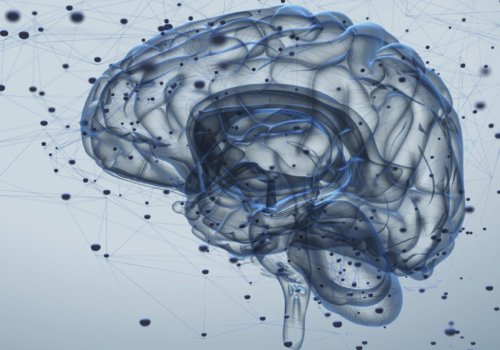CGRP-Blocking Antibodies: Q&A With Dr. David Dodick
Emerging treatments, such as calcitonin gene-related peptide (CGRP)-blocking antibodies, hope to put an end to migraine. Dr. David Dodick explains how and why they work.
David Dodick, MD, FAHS is a professor of neurology at the Mayo Clinic, as well as former President of the American Headache Society, International Headache Society and Chair of the American Migraine Foundation. We spoke to him about the newest antibody treatments and what they could mean for migraine patients.

Tell us about the research you’re doing on CGRP blockers and how it relates to treating migraine.
We are designing the clinical trials to try to show whether or not the CGRP monoclonal antibodies are going to be effective for the prevention of migraine, whether they’re going to be safe to use in patients, and what kind of side effects they cause. Fortunately, most of the pivotal clinical trials have already been completed. These antibodies now are being submitted for approval to the FDA, so we’ve come a very long way in a short period of time. We’re also using these antibodies in experimental animal models. We’re testing whether or not these antibodies might be effective for other disorders like post-traumatic headache, the kind of disabling headaches that individuals experience after a concussion or traumatic brain injury. We’re also looking to see whether or not they’re effective in cluster headache. We’re conducting the largest clinical trials actually ever done in a cluster headache population, because it’s the most severe pain known to humans, and at this point in time, there’s very little that we can do to effectively treat and manage patients with cluster headache.
What’s the most interesting piece of information as it relates to how this is going to impact migraine patients or headache patients?
I think these therapies are going to be transformative for the entire field in a way like nothing else has been before. Up until now, there’s never been a treatment designed, synthesized, tested and approved to prevent migraine specifically. The reason that’s important is because these drugs are so specific they target a protein that’s responsible for transmitting pain signals. That means we know enough about this disease now to actually target a single protein or its receptor. These drugs are so specific that there’s no off-target toxicity on other organs. Because these drugs, or biologics, are proteins, when they get into the body, rather than being metabolized by the liver and rather than attaching to other proteins and other drugs in the body, they’re simply broken down into their own amino acids. That’s huge, because the side effect baggage that a lot of the drugs we use carry is enormous. Side-effects are the reason why over 80% of patients can’t stay on these prevention medications once they start them. Eighty percent have discontinued them by the time the year passes. The side effect profile for CGRP blockers looks very benign.
Can you explain more about how the treatment works?
We produce antibodies in our body to fight off germs, bacteria, and viruses. You can actually design antibodies to target anything you want. That’s the beauty of these monoclonal antibodies. These are proteins designed to target something very specific. And the fact that we know, at the level of a molecule—at the level of a protein—what to target to stop pain transmission that occurs in migraine, is unbelievable to say the least, because migraine has been around since thousands of years B.C., and not until now have we had anything so specific to prevent it.
How is the treatment administered?
The beauty of these biologics is that they’re self-administered once a month. Rather than popping a pill once, twice, or three times a day, these are simply self-administered once a month or once every three months or infused once every three months or once every six months. Adherence is not a problem. Once you’ve injected it, the drug is on board and it’s on board for one to three months. You don’t have to pop pills every day. That, the side effect profile, the efficacy, the lack of toxicity, and the ease to adhere to the medication is why I say these are transformative.
Will this have to be used in conjunction with other treatment methods?
Will everybody respond? The answer is no. For some people, this protein that we’re targeting appears to be very important for them, but there’s a lot of individual variability between people, of course. For another group of patients, there may be another protein or another receptor that’s really important, and drugs are in development right now to target some of these other proteins that we know are important in migraine. For a population of people, these drugs are going to be highly beneficial, but not for everybody. Will these drugs obviate or preclude or make unnecessary the need to take medication for an acute attack? The answer is no. People will have leftover attacks for which they’ll need to take as needed medication to get rid of that attack. Will it obviate, preclude, or make unnecessary the need to take daily medications that people take to reduce the frequency of attacks? The answer is probably in a lot of people yes, but in some people no.
When can patients expect to have access to this new treatment?
Certainly sometime in 2018, we highly anticipate these therapies will be available.
Dr. Dodick is a member of the American Headache Society, a professional society for doctors and other health care workers who specialize in studying and treating headache and migraine. The Society’s objectives are to promote the exchange of information and ideas concerning the causes and treatments of headache and related painful disorders, and to share and advance the work of its members. Learn more about the American Headache Society’s work and find out how you can become a member today.


